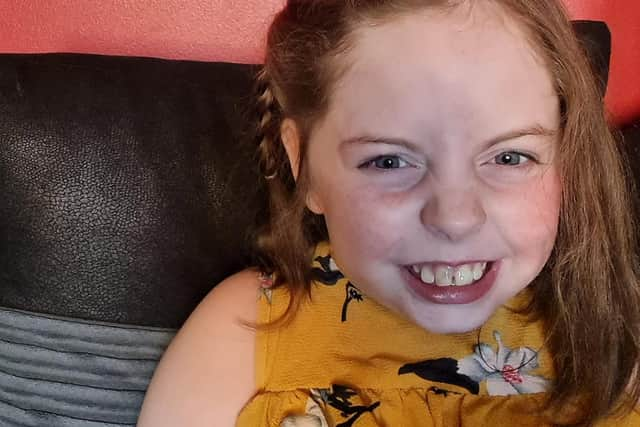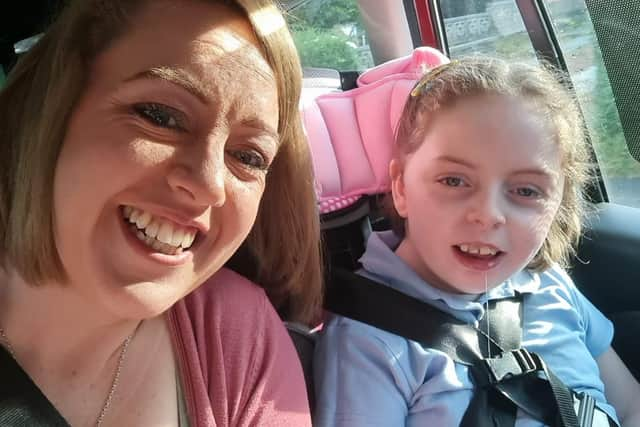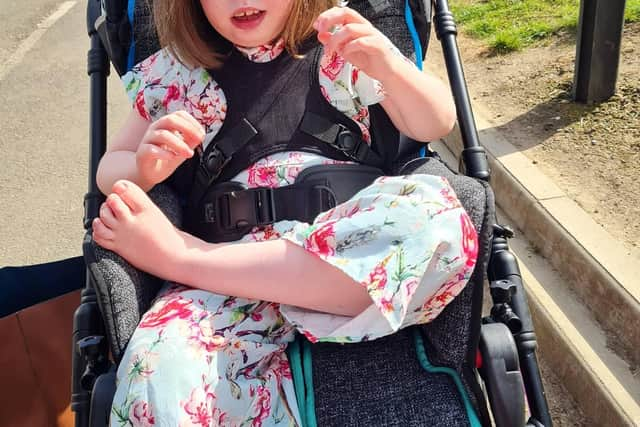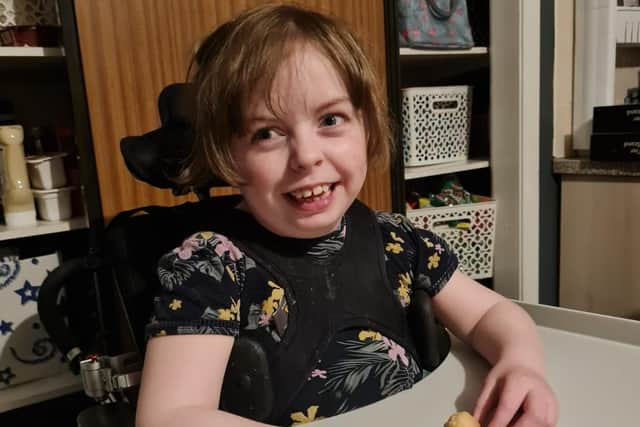Scottish girl believed to be only child in the world with combination of rare diseases
She “lights up” when she hears music, and has an “incredible gift” for engaging with strangers (she used to get birthday cards from staff at her local supermarket).
She is also believed to be the only child in the world with a combination of two rare genetic conditions: Inv Dup Del 8p, a chromosome anomaly known to affect around 100 people worldwide, and a mutation in a gene called SCN1B, of which there are around 60 to 80 known cases.
Advertisement
Hide AdAdvertisement
Hide AdHannah is the only child her mother Rebecca, 33 – who has become active in the global rare disease community – knows of with both conditions.


As a result she has a learning disability, and uses a wheelchair. She has epilepsy, which comes with both conditions but is worsened by the combination.
Hannah was diagnosed with Inv Dup Del 8p when she was almost two, after her parents spent months seeing various doctors and specialists.
The diagnosis opened up a community, and in 2019 they travelled to New York to meet 82 other families of children with the condition who had travelled from all over the world for a conference.
But from the age of seven, Hannah’s epilepsy became worse.


She had 120 seizures in 2020, and then 552 in 2021. She spent a lot of time in hospital during the pandemic, and lost some ability in her movement and speech.
Eventually she was diagnosed with the SNC1B mutation.
The two conditions exacerbate each other, resulting in more seizures than would be expected with either on their own.
For Ms Pender, the diagnosis was a relief, as it “opened doors” for treatment.


In Hannah’s case, it meant doctors were now aware that medication usually used to treat epilepsy could make her condition worse.
Advertisement
Hide AdAdvertisement
Hide AdMs Pender implored healthcare professionals to listen to those with rare diseases, or their families, as their cases are often unique.
“We don't expect healthcare professionals to know everything about every single rare condition,” she said.


“What they can do is take a moment to speak to patients, speak to the families and caregivers and parents of rare disease patients, and find out what it means for that particular person.
“The most important thing is to hear parents as to how their children respond to different things.”
Doctors are often surprised by how pale Hannah is, or her high pain threshold.
There have been several occasions when Ms Pender has felt instinctively that something is wrong, but this has not been obvious until hours or days later.
In one such case Hannah was kept under observation in A&E, and later had seizures so severe Ms Pender believes her daughter would not have survived if doctors had not trusted her and kept her in hospital.
“The greatest arsenal that medics and healthcare professionals have in understanding and treating people with rare diseases properly are the people that live with or care for people with rare diseases,” she said.
Advertisement
Hide AdAdvertisement
Hide Ad“We know these diseases inside out because we've been the ones who are up till 2am researching them, connecting with families around the world, gathering that real word data from other families and getting that complete understanding.”
A message from the Editor:
Thank you for reading this article. We're more reliant on your support than ever as the shift in consumer habits brought about by coronavirus impacts our advertisers.
If you haven't already, please consider supporting our trusted, fact-checked journalism by taking out a digital subscription.
Comments
Want to join the conversation? Please or to comment on this article.
